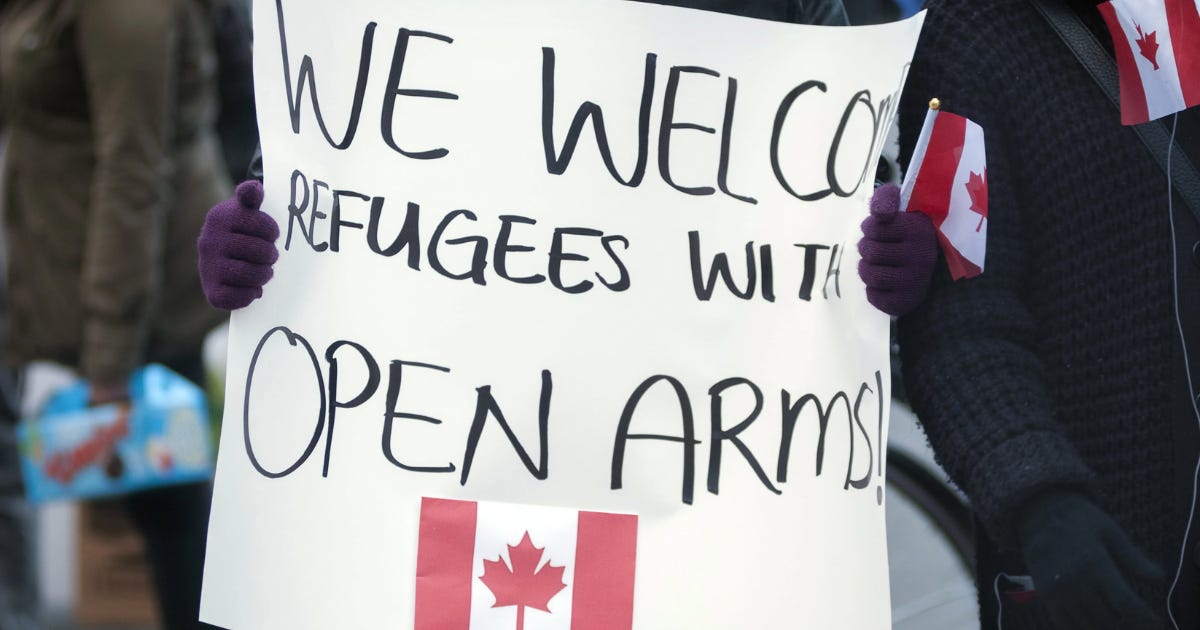Refugee claimant gets second chance, even after potential copycat blunder
The Federal Court of Canada has given Parwinder Singh, a 22-year-old refugee claimant from India, a second chance at asylum.
The Federal Court of Canada has given Parwinder Singh, a 22-year-old refugee claimant from India, a second chance at asylum—even after the Refugee Appeal Division flagged hundreds of seemingly copy-pasted stories submitted by the same immigration consultancy firm.
Although Federal Court Justice Guy Régimbald sided in favour of Singh and against the Minister of Citizenship and Immigration, the case sheds light on troubling signs of potentially systemic immigration fraud, with hundreds of refugee applications described as “strikingly similar.”
The Refugee Appeal Division—channelling its inner plagiarism detector—noted Singh’s "basis of claim" narrative bore a “striking” resemblance to those of others, many of whom travelled to Canada with him. As a result, officials concluded his story was “not genuine.”
In essence, the ministry alleged that Singh’s immigration consultant had copy-and-pasted the same story across numerous applications.
The specifics of Singh’s account were not only suspiciously similar to hundreds of others, according to the court’s July 11 decision, but also highly detailed.
Singh arrived in Canada in November 2019 after retaining Deepak Pawar, an immigration consultant listed on LinkedIn as working for Oneview Immigration Inc., based in Montréal.
According to Singh’s refugee claim, he fled his home in the village of Basant Pura, Haryana, following a violent encounter on June 25, 2019. While walking home from school with friends, Singh says they were accosted by a group of knife-wielding youths. A fight broke out, and one of Singh’s friends was fatally stabbed. The attackers allegedly included the nephew of a well-connected politician.
Singh claims that three days later, local police interrogated and beat him into unconsciousness. His father later rallied villagers in protest and paid a bribe to secure his release. Fearing further violence or retaliation, Singh fled to New Delhi, and his father arranged for his travel to Canada.
In February 2023, the Ministry of Immigration and Citizenship intervened in Singh’s hearing before the Refugee Protection Division, arguing that his narrative was not credible. They presented evidence of “language, phrases and other similarities” to five other claimants who travelled with Singh, and to nearly 200 other cases connected to Pawar.
The Canada Border Services Agency conducted an analysis linking those claims to the same consultant.
“Above all else,” Justice Régimbald wrote in his July 11 ruling, this is “a case about a young man who sought Canada’s protection as a sixteen-year-old boy, and what his story shares with the stories of the many asylum seekers who sought out the services of their Immigration Consultant, Mr. Deepak Pawar.”
True North located Oneview Immigration Inc. and noted a Google review posted roughly one year before Régimbald’s decision, echoing the ministry’s concerns.
“He is copy pasting same stories, same phrases,” wrote a user named Gurpreet Singh. “Even the Refugee Protection Division said that the 150+ applicants of his has same data in their applications. Hence – applicants getting refusal.”
A person identifying as the firm’s owner pushed back.
“Wow! We have seen fair share of our fake reviews, but this one takes the cake,” they wrote. “Firstly, we represent our clients before RPD. The narratives are provided by the applicants themselves (if they know English) or through interpreters… We have represented thousands of refugee claimants and they can all tell you that what you are saying is wrong.”
Justice Régimbald struck a middle ground. While he noted a “lack of evidence” Pawar used “a template for his clients,” he also ruled that “it is not unreasonable to draw a negative inference as to credibility from unwarranted similarities between a refugee claimant’s narrative and the narratives of other unrelated claimants.”
The judge ultimately found that the Refugee Appeal Division had failed to adequately consider key differences between Singh’s claim and others. For instance, Singh alleged that an influential family in India had falsely implicated him in a murder, whereas another claimant accused of copying his story had made no such allegation.
“Failing to account for this distinction, or at least cogently explain why it does not affect the ultimate outcome, seriously undermines this Court’s confidence in the result reached by the decision maker,” Régimbald wrote.
As such, Singh’s claim—and his chance at becoming a Canadian citizen—will receive a second review.




